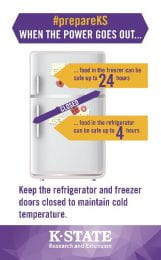Strokes are life threatening and the third leading cause of death. But most people don’t know the signs. Remember to BEFAST! You could help save a life! Learn more from the American Stroke Association.
By: Brenda Langdon
Strokes are life threatening and the third leading cause of death. But most people don’t know the signs. Remember to BEFAST! You could help save a life! Learn more from the American Stroke Association.
By: Brenda Langdon
We look forward to seeing you at your local county fair! Individuals of all ages are encouraged to exhibit an item, creation, and/or skill in Open Class. The fair is a great place to see local talent on display and to enjoy entertainment with your friends and family. Contact your local Post Rock District Office for the complete fair schedules and exhibiting guidelines. You can also visit the Post Rock District website.
Post Rock District 2021 Fair Dates
Jewell County (Mankato): July 8—11
Smith County (Smith Center): July 15—19
Lincoln County (Sylvan Grove): July 14—17
Mitchell County (Beloit): July 21—24
Osborne County (Osborne): July 28—31
By: Nora Rhoades
Did you know that skin cancer is the most common cancer in the U.S., and that unprotected UV exposure is the most preventable risk factor for skin cancer? There are many ways that you can protect yourself and others from harmful UV rays.
Source: American Academy of Dermatology Association
By: Ashley Svaty
If you have filed your federal and state tax return, now is the time to do a tax checkup. Pay necessary taxes but no more. Ideally you shoul d owe nothing and get no refund when your taxes are figured. Why give the government a short-term loan without interest? If you do get a large refund, increase the number of deductions on your W-4 form to reduce the amount of money withheld from your paycheck. Then you can use the money from each paycheck to pay down debt or to increase savings.
d owe nothing and get no refund when your taxes are figured. Why give the government a short-term loan without interest? If you do get a large refund, increase the number of deductions on your W-4 form to reduce the amount of money withheld from your paycheck. Then you can use the money from each paycheck to pay down debt or to increase savings.
Itemize deductions when appropriate and keep adequate records to justify those deductions.
Use tax credits (Earned Income Tax Credit or Dependent Care Credit, for example) if eligible.
Know your marginal tax bracket. Use the information to guide decisions about whether to utilize taxable or tax-exempt investments. Check your bracket each year for changes. For updated tax bracket information, see: https://www.dinkytown.net/java/marginal-tax-rate-calculator.html or https://taxfoundation.org/publications/federal-tax-rates-and-tax-brackets/ .
By: Brenda Langdon
 While we do not have any in-person food preservation workshops scheduled at this time, there are numerous online learning options available! Now is a perfect time to brush up on your knowledge and skills before the harvest. Here are Universities who offer online courses:
While we do not have any in-person food preservation workshops scheduled at this time, there are numerous online learning options available! Now is a perfect time to brush up on your knowledge and skills before the harvest. Here are Universities who offer online courses:
Learn at your own pace by watching these videos at Preserve it Fresh, Preserve it Safe.
For more education to preserve food safely at home, see the KSRE website Preserve it Fresh, Preserve it Safe.
By: Ashley Svaty
 Severe weather events like thunderstorms and tornadoes can bring down power lines in a neighborhood or even entire grids of a city. When the power goes out, the clock starts ticking on the viability of perishable foods in the refrigerator and freezer.
Severe weather events like thunderstorms and tornadoes can bring down power lines in a neighborhood or even entire grids of a city. When the power goes out, the clock starts ticking on the viability of perishable foods in the refrigerator and freezer.
According to the USDA, bacteria like E. coli, Salmonella, and Campylobacter can grow within minutes of food entering the “Danger Zone” – the range of temperatures between 40 and 140 degrees F. The insulation in freezers and refrigerators are your best allies during a power failure, as long as you don’t subvert them.
Ready.gov provides the following tips to manage food when the power goes out:
By: Ashley Svaty
If you planted lettuce this spring, it won’t be long before it’s time to harvest. Lettuce is fun to grow because it’s one of our quickest vegetables. There are a few different ways to harvest the leaves and enjoy them over the summer. Watch this video to learn how to harvest your lettuce crop.
By: Cassie Homan